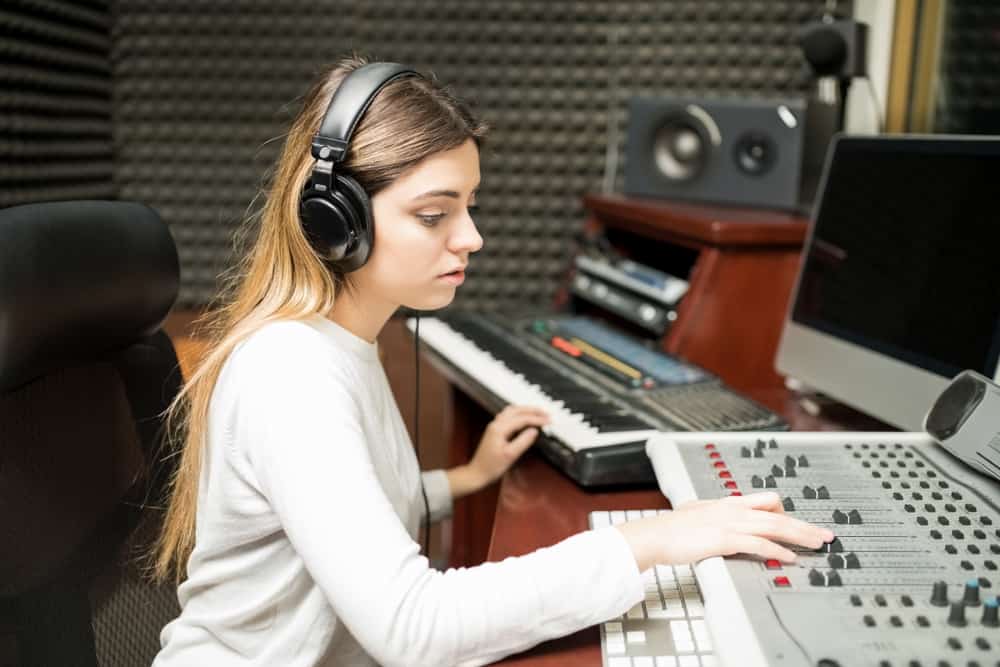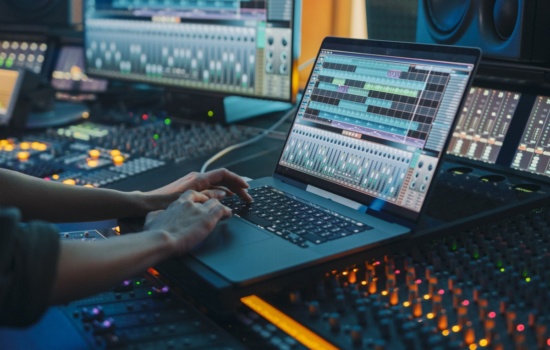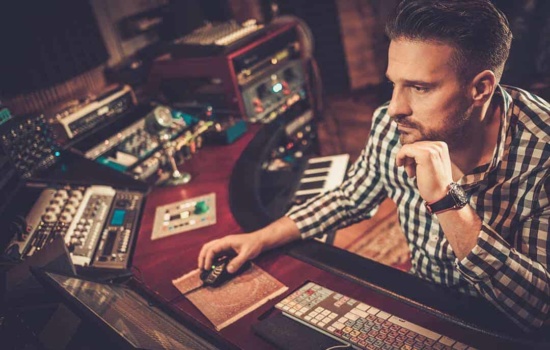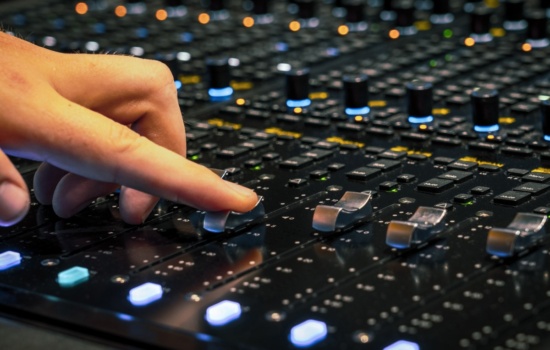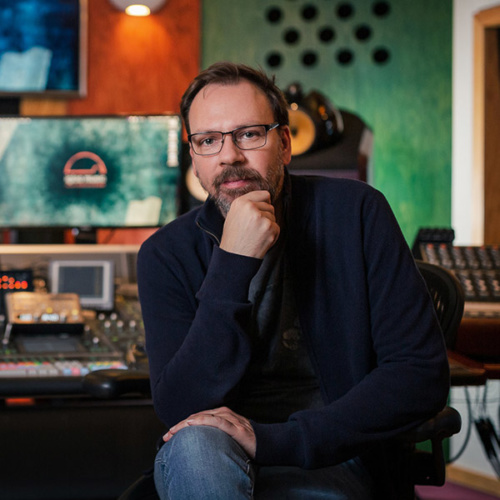Audio engineering is a blend of technical know-how, sharp ears, and people skills. To thrive in this field, you’ll want to develop a broad skill set. Some of these skills are obvious (knowing how to use audio gear), while others might surprise you (like psychology and diplomacy!). Here’s a rundown of key skills and qualities successful Audio Engineers tend to have:
Deep Technical Knowledge of Audio Equipment and Software:
You should know your tools like the back of your hand – and there are a lot of tools. This includes understanding how microphones capture sound (and which mics are best for which situations), how to operate mixing consoles (analog boards and digital mixers), and being proficient with your DAW (Digital Audio Workstation) of choice. Pro Tools is considered the industry standard in many studios, so it’s a good one to learn, but other popular DAWs include Logic, Ableton Live, Reaper, FL Studio, etc. Beyond that, you’ll need to know how to use outboard gear or plugin equivalents (equalizers, compressors, reverb units, etc.). Audio engineering can get geeky – signal flow, gain staging, file formats, sample rates – but you need to master these fundamentals.
“You’ve got to know the technical end of things like the back of your hand so you’re not thinking about it when you’re in the studio.” — Jay Messina (Aerosmith, KISS, Miles Davis)
In other words, the technology should become second nature, freeing you up to focus on the music.
Critical Listening and Ear Training:
Having a “good ear” is huge. This means you can really hear the details in sound – identifying when something is slightly out of tune, or noticing a faint hiss that shouldn’t be there, or recognizing that the guitar tone is too muddy around 200 Hz. The more you practice active listening, the better you get. Many engineers develop the ability to pinpoint specific frequency ranges by ear (ear training apps and exercises can help with this). Critical listening also involves musicality – understanding balance, dynamics, and how all the parts of a song should interact. It’s not just technical, it’s an art form of listening.
Understanding of Acoustics:
Sound behaves differently in different environments. Audio Engineers benefit from knowing some acoustics basics – like how sound reflections in a room can cause echoes or how bass frequencies build up in corners. If you’re in live sound, you’ll constantly battle venue acoustics and find workarounds (e.g., using different speakers or EQ to compensate). In the studio, you might help position acoustic panels or bass traps to treat a room. You don’t need to be a physicist, but understanding concepts like reverb, delay, phase, and soundproofing will help you solve problems and get better recordings.
Problem-Solving & Technical Troubleshooting:
Imagine: the singer is in the vocal booth ready to go, and suddenly the mic stops working. Or mid-show, the left speaker cuts out. As the engineer, all eyes are on you to fix it – fast. You’ll need a cool head under pressure and a knack for troubleshooting. This often means systematically checking signal flow: “Is the cable working? Is the preamp on? Did someone accidentally mute the channel?” Over time, you develop a mental checklist and intuition for common issues. In audio, something will inevitably go wrong at some point – having a calm, problem-solving mindset is a lifesaver. It’s like being an audio detective, tracking down the source of hums, buzzes, or silence.
Creativity and Musical Sense:
Yes, it’s technical, but audio engineering is also creative. Especially in roles like mixing or sound design, you’re making artistic choices – which reverb makes this vocal sound ethereal? How can we use sound effects to make a scene in a film feel scary? A good engineer isn’t just a button-pusher; they’re a collaborator in the artistic process. Understanding music (knowing a bit of music theory, or at least structure and genre conventions) is extremely helpful. Many engineers play an instrument or at least were avid music fans before turning to the tech side. It helps you communicate with artists and anticipate their needs. If a rapper says, “Make it hit harder when the chorus drops,” your creative side translates that into an actual technique (maybe adding a bass drop or widening the stereo image).
People Skills and Communication:
Surprise! Being a great Audio Engineer isn’t only about working with gear – you’re also working with people. Whether it’s a band, a producer, a film director, or a corporate client, you need to communicate clearly and diplomatically. Part of the job is creating a comfortable environment for the artist. If a singer is nervous, you might crack a joke from the control room to lighten the mood. If a producer gives vague feedback like “make it sound warmer,” you need to ask the right questions to figure out what they really mean.
Also, teamwork is key: in a studio session, you might have an Assistant Engineer or a Producer giving you input; live, you’re coordinating with stage techs and the performers. And as mentioned, keeping your ego in check and being someone people like to work with will take you far.
An experienced Engineer, Julian Dreyer, highlighted the importance of reading the room:
“Having the ability to be proficient at the technical part of your job, but also be skilled at quickly identifying and sussing out the social dynamic if you’re working with bands (which are like five-way marriages)… The ultimate goal of an Audio Engineer is to be invisible, meaning you facilitate the process without getting in the way of the artist’s comfort and creativity.”
In short: be technically good, but also be a good human.
Stamina and Patience:
Long sessions, doing multiple takes, fine-tuning tiny details for hours – this job can be physically and mentally draining. You might be on your feet all day at a festival running cables in the hot sun, or pulling an all-night mixing session fueled by caffeine. You need stamina (sometimes literally good health – protecting your hearing is critical, for example, and being able to endure loud environments safely by using ear protection when needed). Patience is equally important. That perfect drum sound might require moving a mic 10 times until it’s just right. An artist might want to try 20 vocal takes and then comp them into one – and you have to keep smiling and encouraging them on take 19. Attention to detail and patience go hand in hand here.
Adaptability and Continuous Learning:
Technology in audio evolves constantly. There’s always a new plugin, a new mixing technique trending, or new gear being released. The best engineers keep learning. You might need to adapt to a new music genre’s production style or learn to use a new digital console at a venue you’ve never been to. Adaptability also means thinking on your feet – if plan A doesn’t work (say, the fancy tube mic you wanted to use is malfunctioning), you quickly go to plan B without missing a beat. Basically, stay curious and never assume you know everything.
In fact, one common trait you’ll find: even the top engineers with decades of experience often say they’re still learning (we have a whole section on that coming up!).
To sum up, here’s a quick list of core skills an aspiring Audio Engineer should cultivate:
- Audio software proficiency (DAWs, plugins)
- Knowledge of audio hardware (mics, mixers, amps, interfaces)
- Understanding of signal flow (how sound gets from source to recorder to speakers)
- Critical listening ability
- Basic electronics knowledge (to fix a bad cable or understand how gear works)
- Strong communication and collaboration
- Problem-solving mindset
- Organization (labeling tracks properly, keeping session files tidy, wrapping cables neatly – it matters more than you think)
- Professionalism and reliability (show up on time, prepared)
- Passion for sound and music (that drive will fuel you through challenges)
If some of these feel intimidating – don’t worry! You learn a lot of it by doing. No one is born knowing how to mic a drum kit or use a compressor; every pro was once a beginner scratching their head at a mixing board. With practice and maybe some formal training, you’ll pick up these skills step by step.
